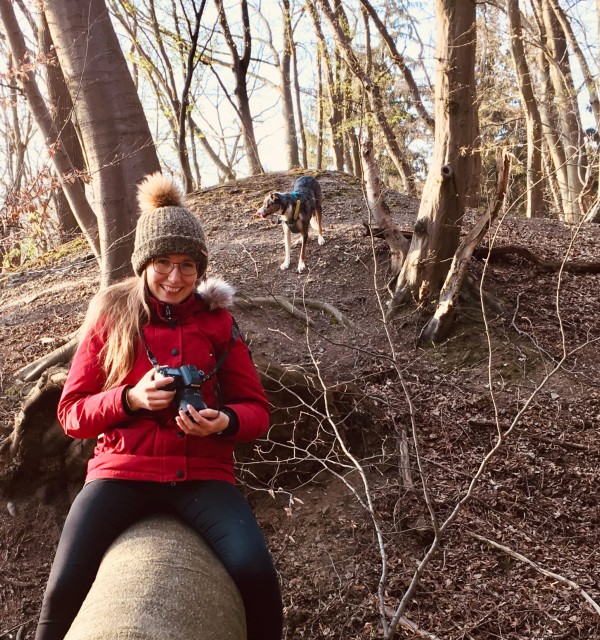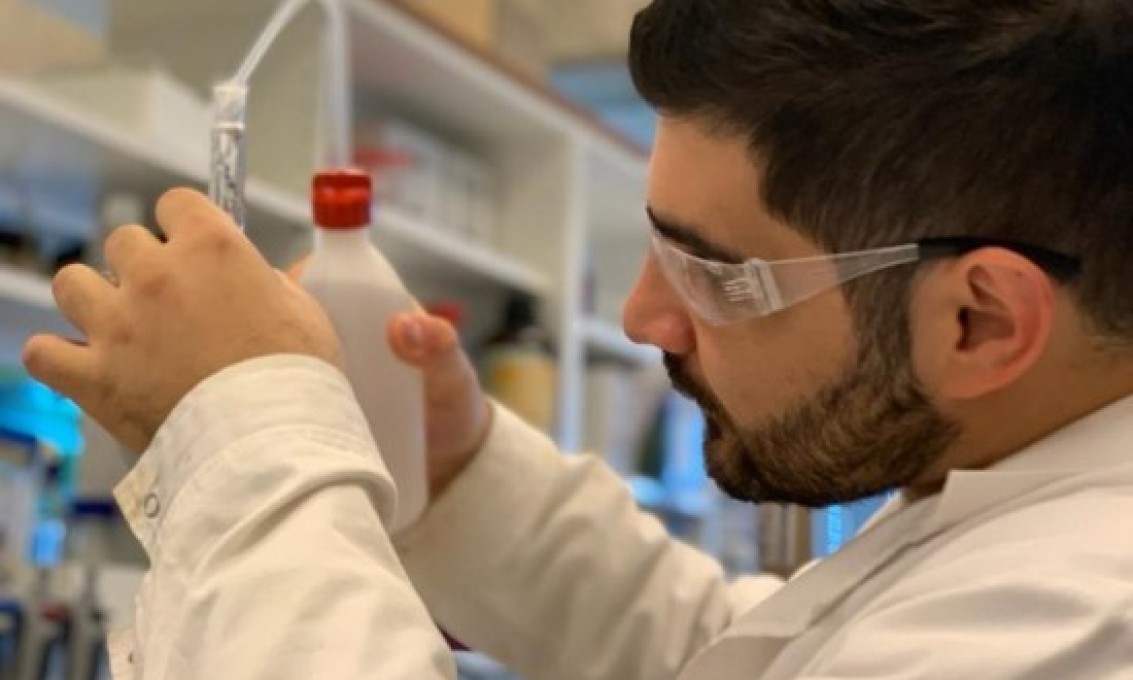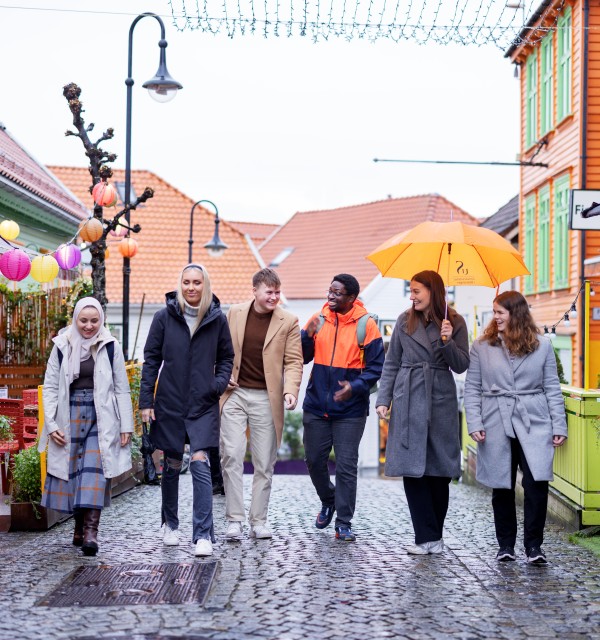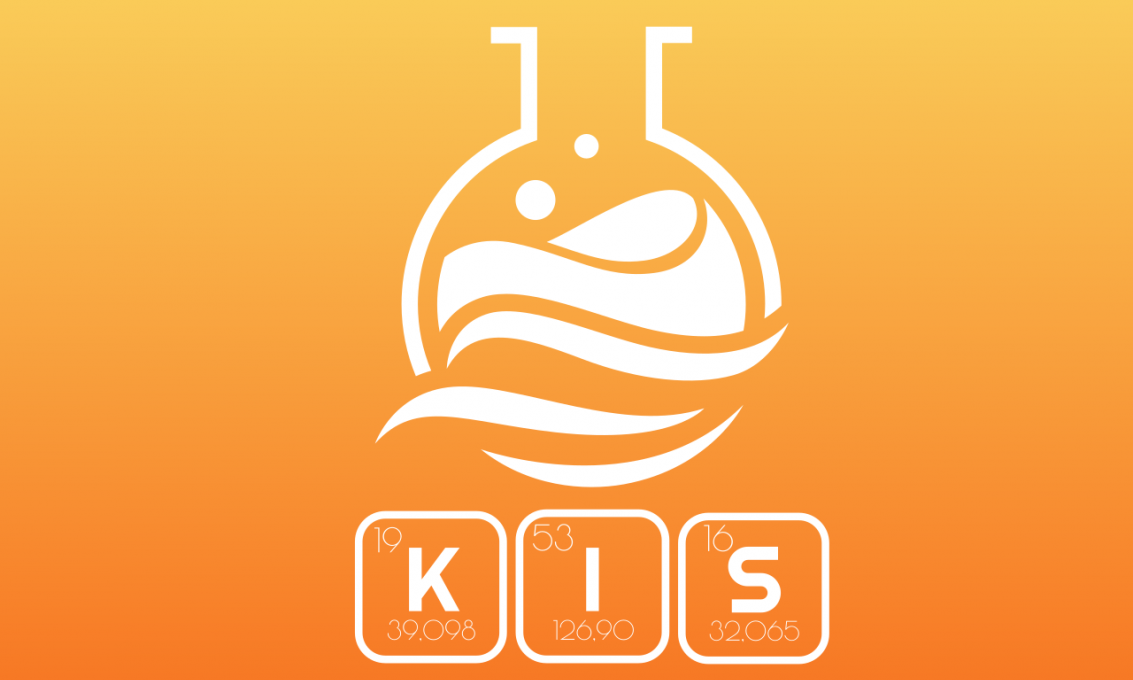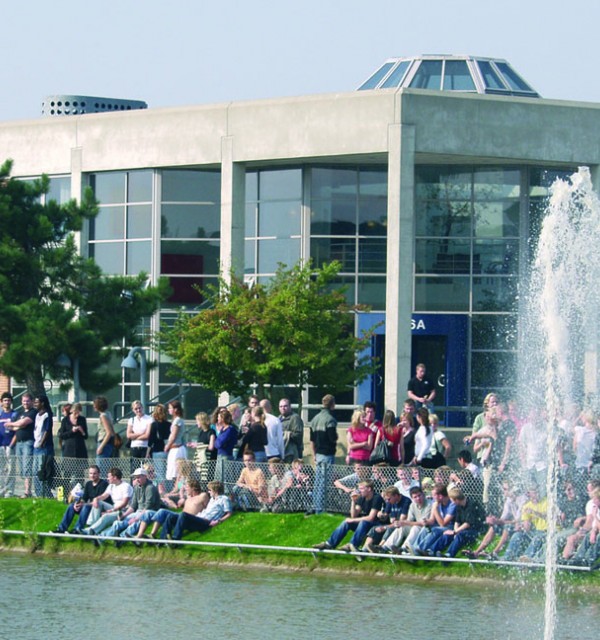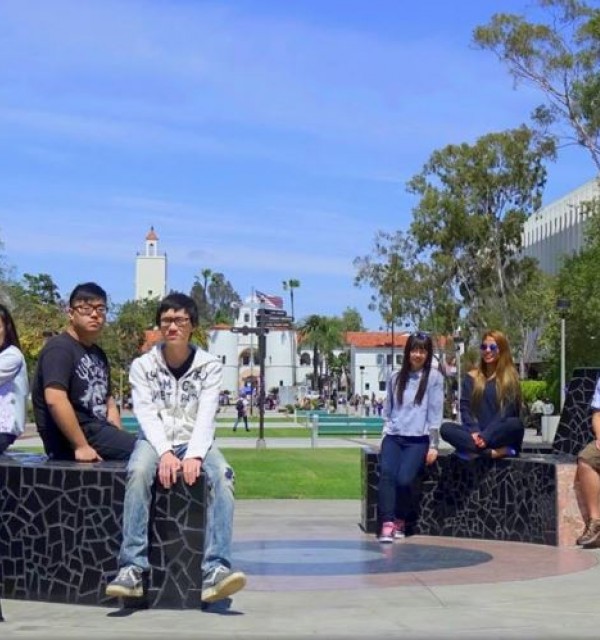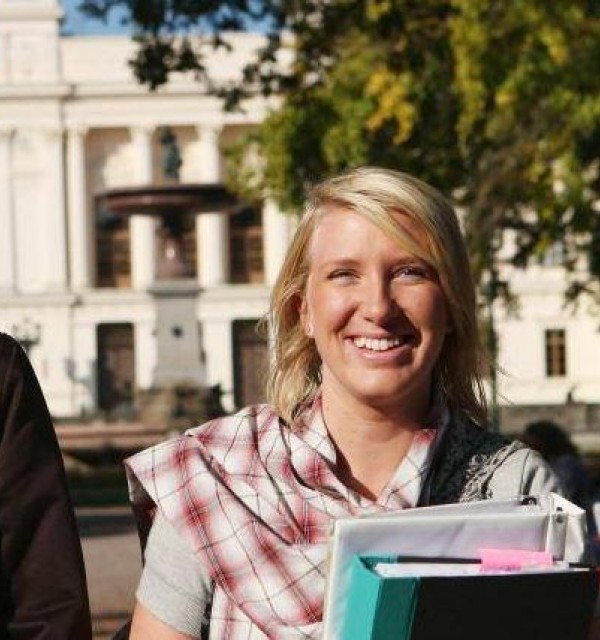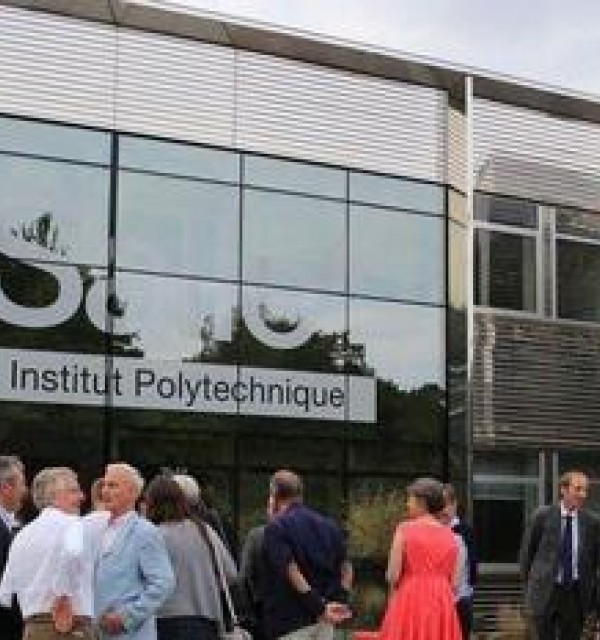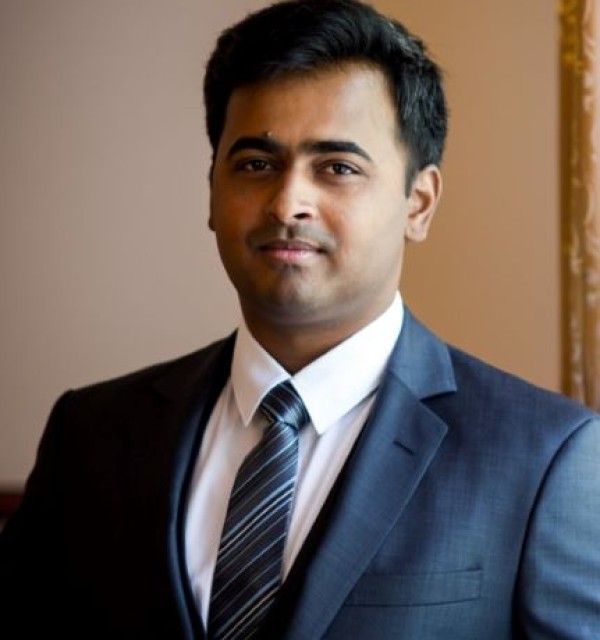Unlock your potential and make an impact on our planet! This master programme in Environmental Engineering, features a unique emphasis on water resource management.
2 years (4 semesters)
English
August every year
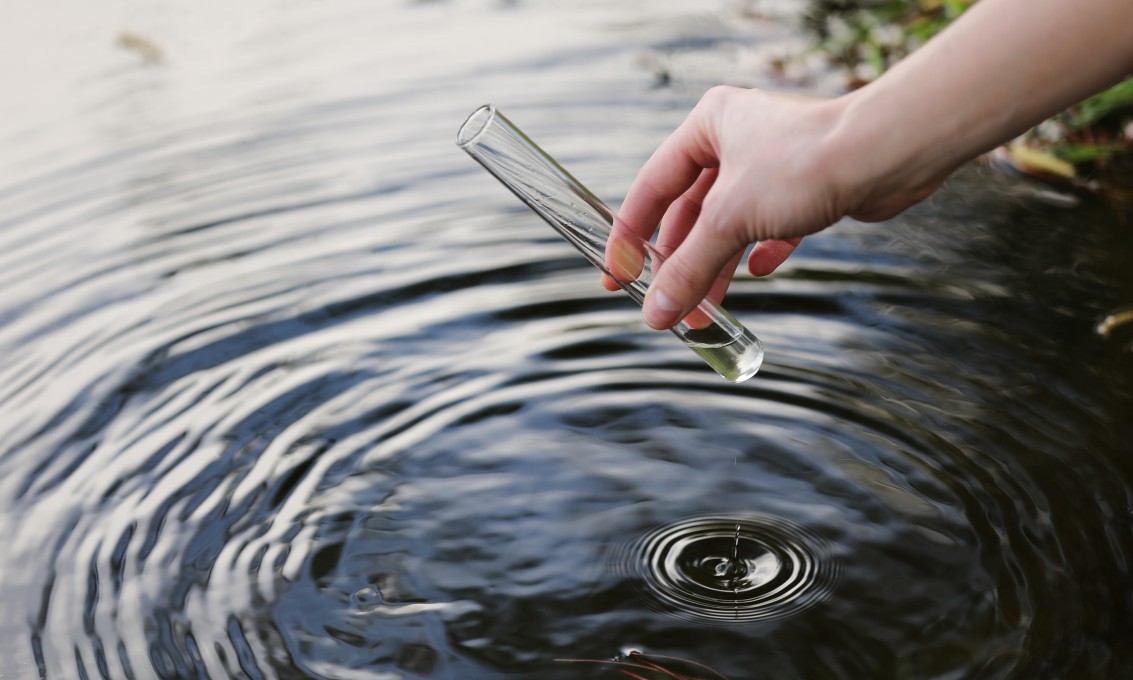
Water scarcity and pollution pose significant global challenges, this programme equips you with the knowledge and skills needed to develop sustainable solutions. In this study programme, you will explore topics in water quality assessment, treatment technologies, and environmental regulations in order to come up with innovate practical solutions.
This programme provides you with practical skills, modern laboratory facilities, and theoretical understanding. Furthermore, you get the opportunity to collaborate with the industry on real-world projects. Our international faculty will guide you in developing innovative and practical solutions.
Career prospects
Graduated students qualify for positions within environmental technology and management in the private and public sector, including research institutions, engineering companies, public offices, or as technical consultants/environmental advisors in industrial enterprises.
Candidates can also qualify for relevant PhD positions at the University of Stavanger, other universities in Norway or abroad.
Learning outcomes
All study programmes at the UiS have a set of defined learning targets. Read more about the learning outcome for this study programme.
After having completed the master’s programme in Environmental Engineering, the student shall have acquired the following learning outcomes, in terms of knowledge, skills and general competences:
Knowledge
K1: The candidate has advanced level knowledge in water chemistry and microbial Ecology of aquatic systems.
K2: The candidate has extensive knowledge of sources, conversion and transportation of vital chemical components for overall water quality in freshwater and marine recipients.
K3: The candidate knows how to characterise water quality and perform aquatic process analysis based on continuity principles and biogeochemical conversion processes.
K4: The candidate knows how to stay current in environmental science and technologies by applying information resources and industrial contacts.
K5: The candidate has advanced level knowledge in technologies for treatment of potable water, and municipal and industrial wastewater.
K6: The candidate has advanced level knowledge of criteria for environmental risk assessment, including key parameters for fate and effect evaluations in receiving aquatic systems.
Skills
S1: The candidate is able to apply and evaluate disciplinary knowledge to diagnose aquatic ecological problems and suggest adequate solutions based on holistic ecological reasoning, including analysis and evaluation of field data.
S2: The candidate can apply basic field equipment for limnological and hydrological measurements including sampling techniques of sediments and free water masses. Furthermore, candidates know how to perform fundamental laboratory methods for water quality analysis and laboratory tests for design and operational analysis of treatment unit processes.
S3: The candidate is competent for work in water quality and ecotoxicological laboratories and acquainted with methods for water quality characterization and toxic analyses. The candidate can adequately document analytical results including formal reporting.
S4: The candidate is able to perform advanced-level water and wastewater characterization, including laboratory testing, and apply mass and energy balances for design, and operational analysis of treatment processes.
S5: The candidate can use advanced computer tools and system models for simulation and system identification of aquatic systems and water treatment processes.
S6: The candidate is knows how to apply key parameters for environmental risk management and apply environmental risk assessment tools to relevant problems in industry.
General Competence
G1: The candidate can contribute to original analysis, innovation and entrepreneurship via development and realization of sustainable products, systems and solutions.
G2: The candidate has a profound understanding of environmental, human health, and societal consequences of ecological impacts on aquatic environments, and competences to view these in ethical and life-cycle perspectives.
G3: The candidate is able to communicate advanced technical and natural scientific knowledge to a wide range of audiences both orally and written. Furthermore, candidates are able to direct attention to the importance and consequences of environmental technology.
G4: The candidate can contribute to scientific discussions, show respect and understanding of other disciplines, and contribute to multidisciplinary projects.
Study plan and courses
Enrolment year: 2024
-
Compulsory courses
-
Water Chemistry
Year 1, semester 1
-
Natural Water Systems
Year 1, semester 1
-
Environmental Microbiology
Year 1, semester 1
-
Environmental Process Analysis
Year 1, semester 1
-
Water and Wastewater Treatment
Year 1, semester 2
-
Environmental Engineering Process Lab
Year 1, semester 2
-
Separation and Purification Technology
Year 1, semester 2
-
Environmental Biotechnology and Bioprocessmodeling
Year 1, semester 2
Environmental Biotechnology and Bioprocessmodeling (MLJ640)
Study points: 10
-
Master Thesis in Environmental Technology
Year 2, semester 3
-
-
Courses or exchange studies 3rd semester - 30 points
-
Courses at UiS 3rd semester
-
Choose min. one course
-
Investment Analysis
Year 2, semester 3
-
Project Management
Year 2, semester 3
-
-
Recommended elective courses 3rd semester
-
Instrumental Analysis
Year 2, semester 3
-
Aquatic Ecotoxicology
Year 2, semester 3
-
Sustainable Resource Recovery
Year 2, semester 3
-
-
Other elective courses 3rd semester
-
Developing Research and Presentation Skills
Year 2, semester 3
-
Oilfield Prod Chem
Year 2, semester 3
-
-
-
Exchange studies 3rd semester
-
Exchange 3rd semester
-
-
Academic requirements
A bachelor’s degree in engineering or other technical/natural sciences degrees with at least 15 ECTS credits in chemistry and basic knowledge in biology. Applicants must have the equivalent of 25 ECTS credits in mathematics, 5 ECTS credits in statistics and 7,5 ECTS credits in Physics. As several courses contain integrated chemistry, an individual and academic assessment of the applicants will be made.
Admission to this master's programme requires a minimum grade average comparable to a Norwegian C (according to ECTS Standards) in your bachelor's degree. Applicants with a result Second-class lower Division or lower are not qualified for admission.
Application and admission
Contact
For inquiries regarding admission to international Master's programmes, send an email to: admissions@uis.no
Student life at UiS
Student exchange
By going on exchange to one of our partner institutions abroad as part of your studies, you will have an opportunity to get a unique education. In addition to improving your career opportunities, you grow as a person and gain the ability to greater reflect on the topics you study as part of your degree. All about exchange
Students may choose to study abroad gaining international experience outside the programme during the 3rd semester.
During the exchange semester you should choose courses similar to your programme. The courses you want to take abroad must be approved by the department. It is important that the courses from abroad do not overlap with courses you have already taken. You must choose at least one non-science/technological course equivalent to 5-10 ECTS (e.g. economics, languages, ethics, project management, green transition or similar).
More opportunities
In addition to the recommended universities listed below, The University of Stavanger has a number of agreements with universities outside Europe that are applicable to all students at The University of Stavanger, provided that they find a relevant subject offering. Within the Nordic region, all students can use the Nordlys and Nordtek networks.
Find out more: https://www.uis.no/en/outbound-exchange-network-and-agreements
Recommended institutions:
- Aalborg University, Denmark
- Lund University, Sweden
- University of Wageningen, Netherlands
- San Diego State University, USA
- Estonian University of Life Sciences, Estonia
Contact your study adviser at the Faculty if you have questions about guidance and pre-approval of courses: Alina Fandieieva
General questions about exchange:
Go to the exchange guide in the Digital student service desk
Student exchange
- All countries
- Danmark
- Estland
- Frankrike
- Nederland
- Sverige
- USA
Contact
Faculty Administration TN
Kontor for utdanningsadministrative tjenester
Department of Chemistry, Bioscience and Environmental Engineering

